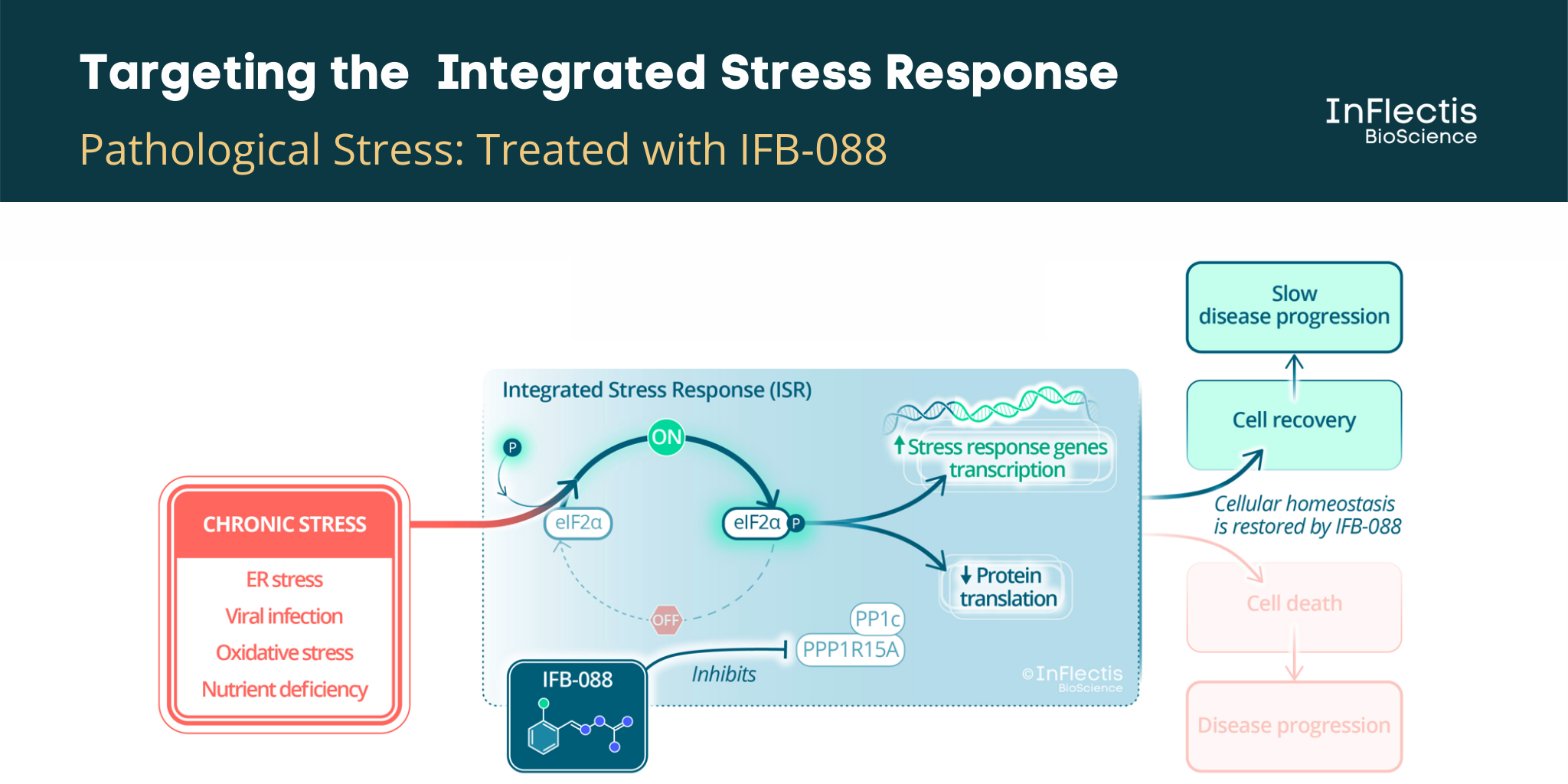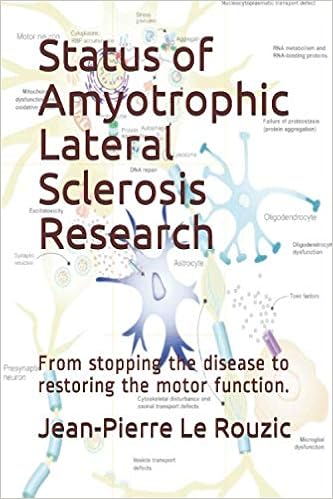InFlectis BioScience received Orphan-Drug Designation from the U.S. Food and Drug Administration (FDA) for its investigational treatment for Amyotrophic Lateral Sclerosis (ALS), IFB-088.
IFB-088 or Sephin-1, is an improved version of Guanabenz, a medication to treat hypertension.

IFB-088 as act as AMX0035 on the cellular stress response but in an different manner. IFB-088 as several action,
- It reduces mitochondrial stresses in ALS.
- IFB-088 is prolonging the protective effect of the Unfolding Protein Response (which trigger Integrated Stress Response) to prevent the production of new misfolded protein and increasing the stress response gene transcription to increase the cellular chaperones until the ER stress is resolved.
After the failure of many ALS drugs including Arimoclomol, and Biogen's two genetiic therapies for SOD1 and C9orf72, scientists are searching for new paradigms.
Research on ER cellular stress offers a clear mechanism of action, something lacking for almost all proposed drugs: When a new protein is built by a ribosome under the direction of mRNA, this protein is "flat", it has not acquired its final shape. This contorted shape makes it acquire new chemical properties.
Folding proteins is achieved in the Endoplasmic Reticulum (ER). Ribosomes are close to the ER so it's easy for proteins to enter the ER which is a very complex structure. At the exit of the ER folded proteins are sent to their final destinations by the Golgi apparatus.
If the ER is not working properly, then proteins built by ribosomes will not be able to be folded and will accumulate at the entrance of the ER, hence aggregates of misfolded, mislocated proteins.
While Sodium phenylbutyrate suppresses the cellular stress, Sephin-1 increases it. It is possible the two drugs might be useful at different stages of the disease course and for different populations.
Both drugs relative efficiency indicates that cell stress responses in neurodegenerative diseases are to be studied with much more attention than done previously.

